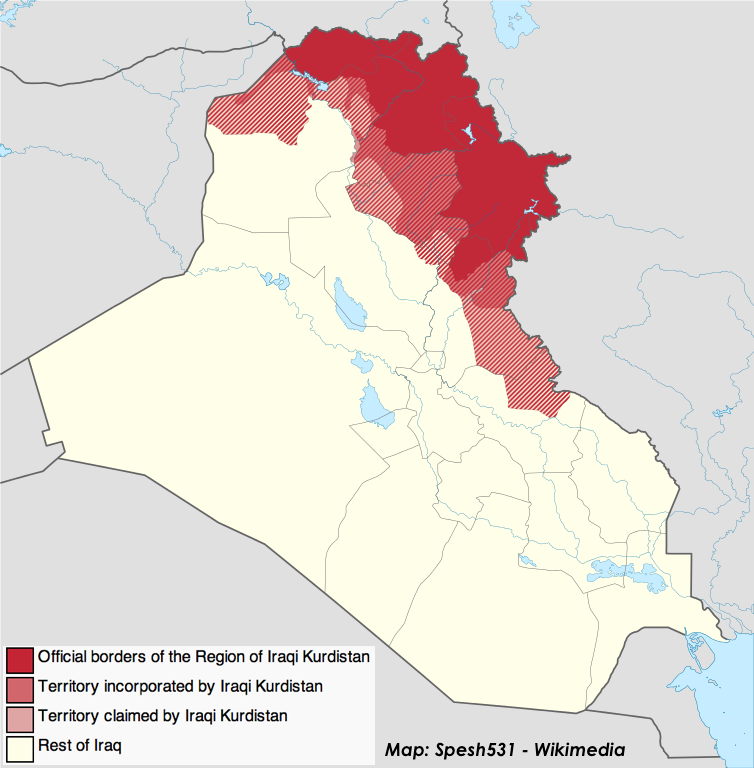Arsenal Bolt: Quick updates on the news stories we’re following.
Another consequence of the unregulated and politically destabilizing flood of weapons to Kurdish militants is that allegedly low-grade (i.e. infrastructural) ethnic cleansing is being conducted by some Iraqi Kurdish forces in evacuated areas (areas previously Arabized by Saddam Hussein, of course, but still a war crime).
The evidence, aid workers and residents say, is in the destroyed, empty villages scattered along the front line between Erbil and Mosul and the dusty flats south of Kirkuk.
“These houses are all being destroyed after the conflict,” said another aid worker who works across Iraqi Kurdistan, speaking anonymously so as not to anger the Kurdistan Regional Government and lose access.
The destruction in some villages appears to go beyond simple collateral damage. On a trip to the front line in the area of al-Gweir, 35 miles southwest of Erbil, it looked as though an impossible wind had blown through, yanking house after house down on one side. The fields and gardens that had fed these mostly Arab villages were charred and black.
Heavy fighting has devastated much of northern Iraq, but humanitarian workers, who have seen dozens of these villages, describe consistent and curious patterns of destruction: scorched fields and empty, burnt-out houses stripped down to the wiring. No livestock, no machinery, no curtains, crockery, or any other detritus of daily life that fleeing people typically leave.
“They want to change these villages demographically,” said a Kirkuk-based aid worker. “If they burn and destroy these villages, people won’t come back. And they want the Arabs to go elsewhere.”



